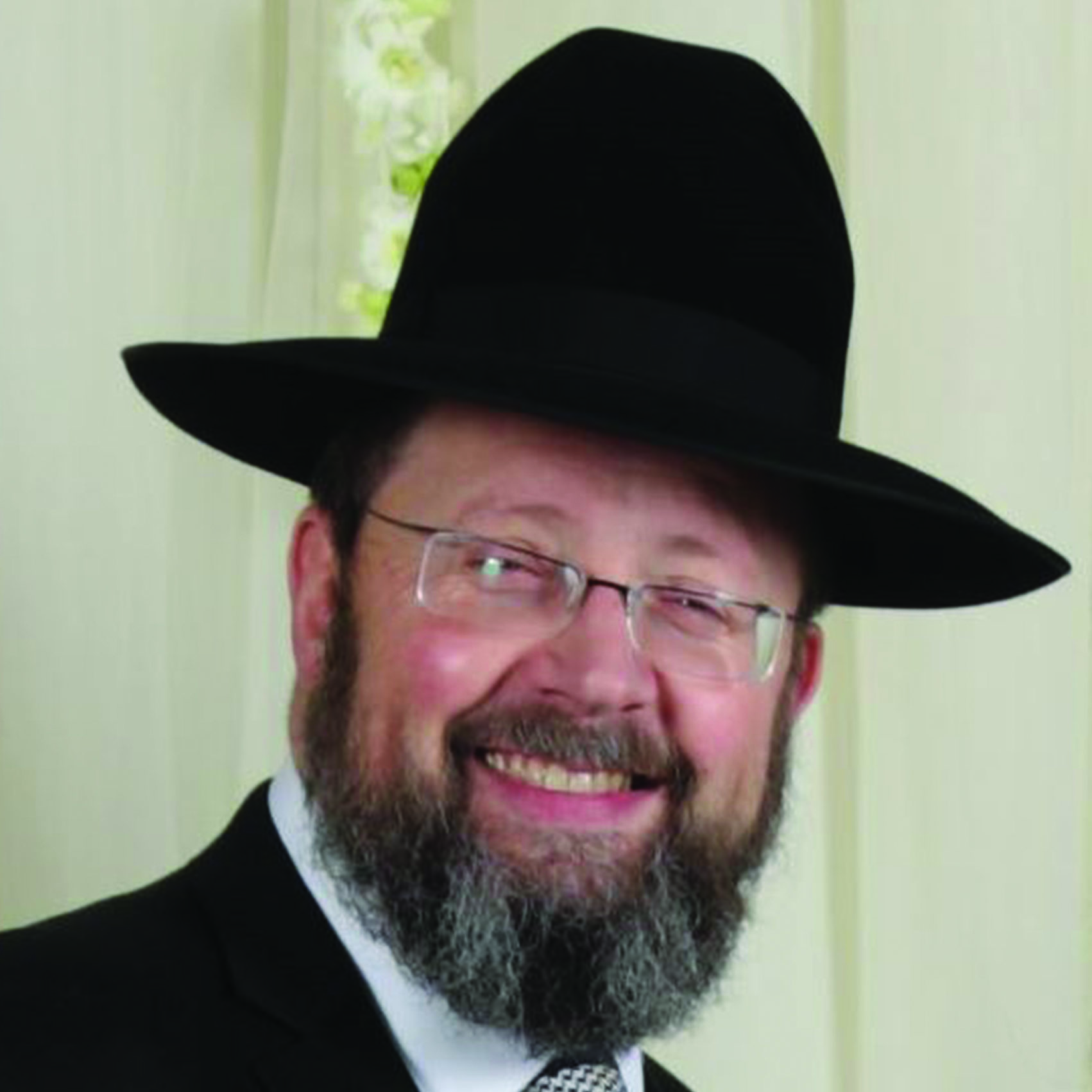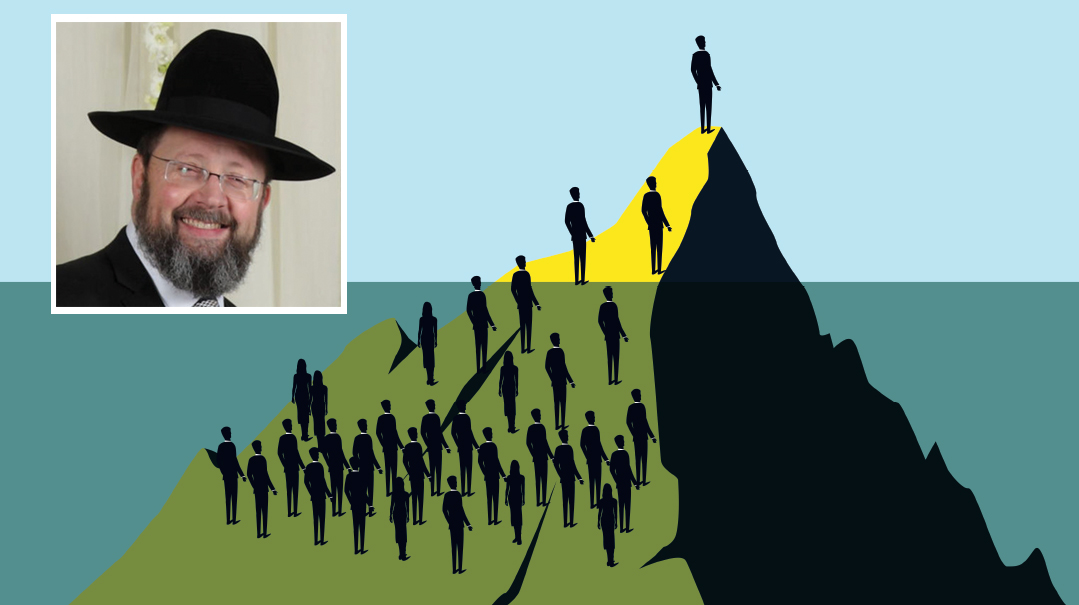A Crisis or a Challenge?

The leadership vacuum that should be worrying us all. Three takes on a troubling trend

Sometimes the only difference between a challenge and a crisis is a headline declaring it the latter.
So I wonder: Is there really a “leadership crisis,” or merely a serious challenge? Are we in fact facing an unprecedented shortage of capable leaders — of principals, rabbanim, and kiruv directors?
Were great leaders more commonplace in the past? On the one hand, it would seem so. Just think of the towering figures who rebuilt Yiddishkeit after World War II. Reb Moshe; Reb Aharon; the Rebbes of Lubavitch, Satmar, Bobov, and Klausenburg; and Rav Yoshe Ber, to name just a few. We certainly have not replaced them. But it’s hard to prove that there’s been a downward trend since that time. In the absence of real data, any “evidence” would seem to be anecdotal and unreliable.
As anecdotes go, I know of one local mosad that struggled mightily to find a new principal — perfect evidence of a dearth of capable leaders. But later I discovered that this was primarily a function of their very exacting criteria. They were looking for someone with experience as a principal of both boys’ and girls’ schools. That certainly limits the pool of possible candidates.
On the other hand, we all seem to know of schools, even those without exacting standards or limitations, that are struggling to fill their leadership positions. And there is no small number of shuls facing the same challenge. Let’s assume, therefore, that there is a vacuum at the top, and if it is not a crisis, it is still at least a challenge. Why would that be?
The Meshech Chochmah, in his famous piece on parshas Bechukosai, notes a repeating pattern in Klal Yisrael’s frequent exiles from country to country. The first wave of immigrants to a new country struggles to establish a foundation and infrastructure for Yiddishkeit to function. They found shuls, schools, mikvaos, and a kashrus apparatus. The next generation — the children of the immigrants — reinforce these nascent structures, causing them to grow and flourish. But the third or fourth generation is born into “the system.” They struggle to find their identity and individuality… and may even rebel.
Galus America certainly seems to be following that pattern. Since we now find ourselves in that third and fourth generation, we may very well be experiencing a collective struggle to establish the vision and initiative that produces leaders.
But there is another factor at work as well. In the past, our communities had built-in “incubators” that valued leadership skills and developed them. Youth organizations such as Pirchei and Zeirei, along with the fledgling summer camps of previous generations, afforded great opportunities for children of immigrants to hone their leadership skills and individuality. Diverse talents and skills emerged from these venues. Future roshei yeshivah such as Rabbis Yisroel Belsky, Moshe Hillel Hirsch, and Meir Stern, as well as community leaders and rabbanim, such as Rabbis Nisson Wolpin, Dovid Trenk, and Ronnie Greenwald and (yibadlu l’chayim) Rabbis Yaakov Bender, Nosson Scherman, Chaim Dovid Zwiebel, and Shia Markowitz all served as camp counselors and/or Pirchei leaders.
But as things stand currently, the yeshivah system calendar does not even coordinate with the summer camp schedule, and at any rate, it is no longer considered “yeshivish” by many bochurim to be a camp counselor or head staff member. Learning camps, or more often, “road trips” are the preferred summer bein hazmanim alternatives. As a result, it has become challenging for camps to find counselors and head staff from the mainstream yeshivos. The situation is a lose-lose. The campers lose the opportunity to have relationships with yeshivish counselors and head staff, and the yeshivah bochurim lose the opportunity to allow their individual talents to shine and blossom.
What, then, is the eitzah? In a word, leadership training. Because, as a well-regarded menahel shared with me, being a successful rebbi or kiruv mashpia is in no way an apprenticeship for becoming an effective principal or director; in fact, it may, surprisingly, even be a hindrance.
Think of the most beloved rebbi you know, a person who lives and breathes love for each individual talmid. Klal Yisrael is blessed nowadays with many such tzaddikim. Does this rebbi necessarily have the profile for being the leader of a mossad? Um… not really.
A leader’s qualities are more global. He must have three basic skills:
- a) a creative vision as to where the mossad should be going;
- b) decisiveness — even, at times, at the expense of an individual’s interest; and
- c) the capability to lift himself above his peers and colleagues and inspire them to follow his vision.
Does being a rebbi in a yeshivah train one for any of that? Not really. Could the typical beloved rebbi also have these qualities? Of course, but his role and job demands as a rebbi in no way foster those capacities.
Sure, being a rebbi trains one about how chinuch functions, about the needs of the children and their parents. Sure, being in the kiruv world teaches one how to dialogue and influence those with limited exposure to Yiddishkeit. And sure, learning halachah, public speaking, and social work help one prepare for the rabbinate. But none of this prepares one for leadership. That is a different skill set.
Think, on the other hand, of a head staff member in camp, or even a color war general. (Rav Meir Stern shlita served as general twice and won both times.) Think of the creative vision he must have, of the decisiveness in determining which direction his team will take, and of the capability to lift himself above his peers and to lead them and his team.
Some leaders are born, but leaders can also be trained. I can envision an organization such as Torah Umesorah identifying the rebbeim and kiruv professionals who are predisposed to lead, and offering them mentorship from accomplished leaders, to enhance and hone these skills.
Yehoshua is described in the Torah as “ish asher ruach bo” — someone who understood people. But that was not enough. Moshe is instructed by Hashem to be mechazek him, and we indeed find again and again, both at the end of Chumash Devarim and the beginning of Sefer Yehoshua, phrases such as “oso chazek,” “chazkehu v’amtzeihu,” “chazak v’ematz,” indicating the encouragement needed for one to lead others — for that character trait to be developed and strengthened.
So I even have a name for the program: Chazak V’ematz! If you are so predisposed, stand up and be counted.
Chazak v’ematz!
Rabbi Avrohom Neuberger is the rav of Congregation Shaarei Tefillah of New Hempstead and the author of Positive Vision, a Chofetz Chaim Heritage Foundation project (Artscroll\Mesorah)
(Originally featured in Mishpacha, Issue 868)
Oops! We could not locate your form.









